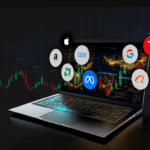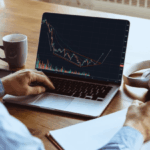Inflation is a fundamental economic concept that refers to the general increase in prices of goods and services over time, leading to a decrease in the purchasing power of money. When inflation rises, each unit of currency buys fewer goods and services than it did previously. This phenomenon can be measured using various indices, with the Consumer Price Index (CPI) being one of the most widely recognized.
The CPI tracks the price changes of a basket of consumer goods and services, providing a snapshot of how inflation affects everyday life. Central banks, such as the Federal Reserve in the United States, monitor inflation closely as it influences monetary policy decisions, interest rates, and overall economic stability. The effects of inflation are pervasive and can significantly impact personal finances.
For instance, if inflation is running at 3% annually, a dollar today will only have the purchasing power of about 97 cents in a year. This erosion of value can affect everything from grocery bills to retirement savings. Individuals may find that their salaries do not stretch as far as they once did, leading to adjustments in spending habits.
Understanding inflation is crucial for effective financial planning, as it helps individuals anticipate changes in their financial landscape and make informed decisions about budgeting, saving, and investing.
The Rising Cost of Goods and Services: How inflation impacts the prices of everyday items
As inflation rises, the cost of everyday goods and services tends to increase correspondingly. This can be observed in various sectors, including food, housing, healthcare, and transportation. For example, grocery prices have seen significant fluctuations in recent years due to factors such as supply chain disruptions and increased demand.
A report from the U.S. Department of Agriculture indicated that food prices rose by approximately 3% in 2021 alone, with certain categories like meat and dairy experiencing even steeper increases. Such price hikes can strain household budgets, forcing families to make difficult choices about what to buy or whether to forgo certain items altogether.
Moreover, inflation does not affect all goods and services uniformly. Some items may experience rapid price increases while others remain relatively stable or even decrease in price. This uneven impact can complicate budgeting efforts for consumers.
For instance, while the cost of electronics may decline due to technological advancements and increased competition, essential items like fuel and rent may rise sharply. This disparity can lead to a situation where consumers feel the pinch more acutely in areas that are essential for daily living, thereby altering spending patterns and lifestyle choices.
Budgeting in an Inflationary Environment: Tips for managing your expenses

In an inflationary environment, effective budgeting becomes paramount for maintaining financial stability. One of the first steps individuals can take is to reassess their current budget and identify areas where they can cut back on discretionary spending. This might involve reducing dining out, canceling unused subscriptions, or finding more cost-effective alternatives for entertainment.
By prioritizing essential expenses and eliminating non-essentials, individuals can create a buffer against rising prices. Another strategy is to adopt a flexible budgeting approach that accounts for inflationary trends. This could involve setting aside a specific percentage of income each month to accommodate potential price increases in essential categories like groceries and utilities.
Additionally, consumers should consider tracking their spending more closely to identify patterns and adjust their budgets accordingly. Utilizing budgeting apps or spreadsheets can help individuals visualize their financial situation and make informed decisions about where to allocate their resources.
Savings and Investments: How inflation can erode the value of your savings and investments
| Year | Inflation Rate | Value of Savings/Investments |
|---|---|---|
| 2020 | 2% | 1000 |
| 2021 | 3% | 970 |
| 2022 | 4% | 932 |
| 2023 | 2.5% | 907 |
Inflation poses a significant threat to savings and investments by eroding their real value over time. For instance, if an individual has a savings account that offers a nominal interest rate of 1% while inflation is at 3%, the real return on that savings is negative. This means that even though the account balance may grow nominally, the purchasing power of those savings diminishes.
Consequently, individuals must seek investment vehicles that can outpace inflation to preserve their wealth. Investing in assets such as stocks or real estate can provide a hedge against inflation since these investments often appreciate over time at rates that exceed inflation. Historically, equities have delivered returns that outstrip inflation over the long term, making them an attractive option for those looking to grow their wealth.
Real estate also tends to appreciate in value and can generate rental income that may increase with inflation. However, these investments come with risks and require careful consideration of market conditions and individual financial goals.
Housing and Transportation Costs: The impact of inflation on your largest monthly expenses
Housing and transportation are typically among the largest monthly expenses for most households, making them particularly sensitive to inflationary pressures. Rising housing costs can manifest through increased rent or home prices, which have been on an upward trajectory in many urban areas due to high demand and limited supply. According to the National Association of Realtors, home prices surged by nearly 15% in 2021 alone, driven by low mortgage rates and a competitive market.
Such increases can strain budgets and limit options for prospective buyers or renters. Transportation costs are also affected by inflation, particularly through rising fuel prices. Fluctuations in oil prices due to geopolitical tensions or supply chain disruptions can lead to significant increases at the pump.
In addition to fuel costs, maintenance and insurance expenses for vehicles may also rise with inflation. As these costs escalate, individuals may need to reconsider their transportation options—whether that means carpooling, using public transit, or even downsizing to a more fuel-efficient vehicle—to mitigate the impact on their overall budget.
Wage Growth and Inflation: How inflation can affect your income and purchasing power

Wage growth is often seen as a counterbalance to inflation; however, it does not always keep pace with rising prices. When wages fail to increase at a rate that matches or exceeds inflation, workers experience a decline in real income, which diminishes their purchasing power. For example, if an employee receives a 2% raise while inflation is at 3%, they effectively have less money to spend than before the raise was implemented.
This discrepancy can lead to frustration among workers who feel that their hard work is not being adequately compensated. Moreover, sectors with stagnant wage growth may struggle more during periods of high inflation. Low-wage workers are particularly vulnerable as they often spend a larger portion of their income on essential goods and services that are subject to price increases.
This situation can create a cycle where individuals are forced to cut back on spending or take on additional work to maintain their standard of living. Policymakers often grapple with this issue when considering minimum wage adjustments or other measures aimed at supporting workers during inflationary periods.
Strategies for Coping with Inflation: Ways to mitigate the effects of rising prices
To effectively cope with inflation, individuals can adopt several strategies aimed at mitigating its impact on their finances. One approach is to diversify income sources by exploring side hustles or freelance opportunities that align with personal skills or interests. This additional income can provide a cushion against rising costs and help maintain financial stability during challenging economic times.
Another strategy involves investing in assets that traditionally perform well during inflationary periods. Commodities such as gold or silver are often viewed as safe havens during times of economic uncertainty due to their intrinsic value. Additionally, Treasury Inflation-Protected Securities (TIPS) are government bonds specifically designed to protect against inflation; they adjust with changes in the Consumer Price Index, ensuring that investors maintain their purchasing power over time.
The Importance of Long-Term Financial Planning: How inflation can impact your future financial goals
Long-term financial planning is essential for navigating the complexities introduced by inflation. Individuals must consider how rising prices will affect their future financial goals—such as retirement savings or funding education—over time. A comprehensive financial plan should account for expected inflation rates when projecting future expenses and income needs.
For instance, if someone aims to retire in 30 years with a target annual income of $50,000 today, they must factor in projected inflation rates to determine how much they will need to save over time. Assuming an average annual inflation rate of 3%, that $50,000 would need to grow significantly to maintain its purchasing power in three decades. By incorporating these considerations into their financial planning process, individuals can set realistic savings targets and investment strategies that align with their long-term objectives while safeguarding against the erosive effects of inflation on their wealth.
FAQs
What is inflation?
Inflation refers to the general increase in prices of goods and services over time, leading to a decrease in the purchasing power of money.
How does inflation affect my monthly budget?
Inflation can affect your monthly budget by reducing the amount of goods and services you can purchase with the same amount of money. This means that you may need to spend more money to maintain the same standard of living.
What are the common expenses that are affected by inflation?
Common expenses that are affected by inflation include groceries, housing costs, transportation, healthcare, and education.
How can I protect my monthly budget from the effects of inflation?
To protect your monthly budget from the effects of inflation, you can consider investing in assets that tend to increase in value over time, such as stocks, real estate, and precious metals. Additionally, you can also look for ways to reduce your expenses and increase your income.
What are some strategies for managing expenses during periods of high inflation?
During periods of high inflation, it can be helpful to create a budget, prioritize essential expenses, look for ways to reduce discretionary spending, and consider alternative ways to save money, such as buying in bulk or using coupons. Additionally, it may be beneficial to explore options for increasing your income, such as taking on a part-time job or freelancing.









